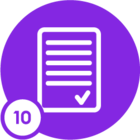We have a flat position structure (do not have any access setup through positions)in this case can we just avoid having positions at all in the system ? I mean, can we just skip this setup completely?
Will that have any impact on any other screens/functinalities ? Please advise




